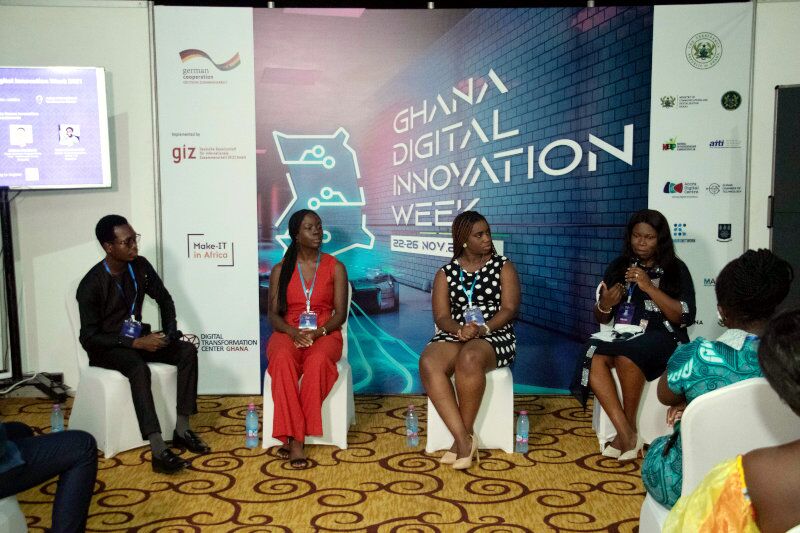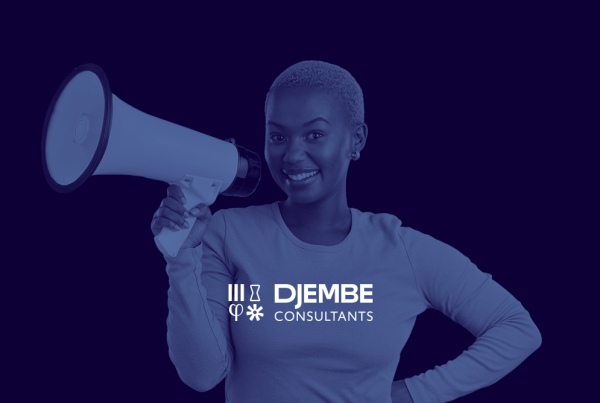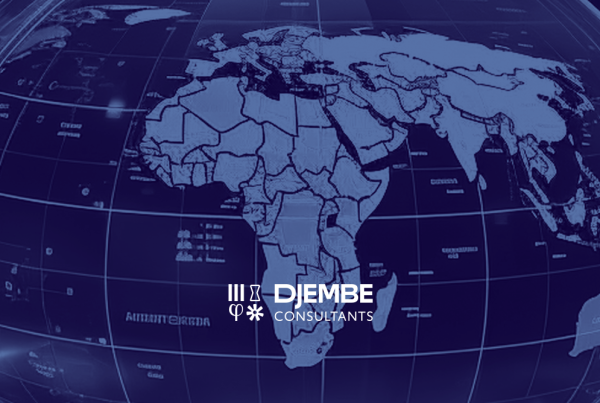Working on the frontier of public relations, innovation policy and startup ecosystem-building, I learnt that anything related to communications does not weigh equally with fundraising, talent acquisition or product-building on the scale of startup founders. Discussing this with one of the world’s foremost and afro-optimist communications’ legends, Mitchell Prather, I came to the realisation that this “not-so-important” issue was one of the challenges stalling the growth of Africa’s innovation ecosystem.
Looking for a diverse female-led perspective to the matter, I engaged three female communications’ experts working across media, policy and digital marketing: Odelia Ntiamoah of the Multimedia Group, Rachel Akrofie of the Tony Blair Institute and Sabukie Osabutey of Africa 118. Our conversation at the Ghana Digital Innovation Week highlighted not only challenges but what I chose to focus on – key learnings and the way forward.
Storytelling? We will do it tomorrow.
Startup founders often give all their attention to the product or service they provide and the people (consumer) they offer them to; leaving unattended one important thing: telling their story. In a fast-paced digital world, a wide range of tools are available for startups and innovators to market their offerings, reach their customers and stakeholders and tell their stories. If many know how to use those tools, crafting their story is more of an uphill battle. Storytelling is a skill as important as product design and maybe more relevant than many assume as a product as perfect as it may be, won’t market itself. Storytelling has been left out of startup strategy for long and that has affected growth, product appeal and market positioning in many ways.
How to craft your story?
How do you feel about what you are building? How passionate are you about the solution you are creating? Storytelling is more effective when it is genuine and “raw”, no filter, just purely genuine.
People believe stories they can relate to and to make your story relatable, use words the layman can understand, use real life happenings, put a face on the story and localise it – use the right colors (for visuals); remember colors have different meanings in different cultures, red for example symbolises luck and happiness in China whiles it stands for anger and danger in Ghana.
Put a (human) face on your brand.
One key advice I left the GDIW 2021 with came from Odelia Ntiamoah, “put a face on your brand”.
People do not buy products and services, they “buy” the people behind those products and services. Let people see who they are buying from, build a bond with your customers, let them hear a human voice when they call you, let them know you by name and make your “face” an ambassador of your brand.
Build a mainstream media-friendly brand
“Everyone wants to be part of a story.”; this statement by Sabukie Osabutey projects what startups can leverage on to appeal to the media, their story. Social and mainstream media thrives on stories, stories of people and communities. Whiles startups have invested quite a lot in digital marketing (according to Mayple, social media remains the topmost marketing platform for startups); they seem to have abandoned mainstream media. That is unfortunate as building an appeal to mainstream media puts the brand before a diverse pool of potential investors and customers. Many areas especially rural areas may be struggling with stable internet connections but have access to radio and TV and being seen or heard on any of them will surely expand reach and help in brand positioning.
Investors invest in people and in stories
Could startups be getting their fundraising strategy wrong? That’s a controversial school of thought but it does not take away one key missing ingredient in fundraising strategy – the focus of investors. I agree with Rachel Akrofie when she says, “Investors invest in people and stories”. Storytelling is not meant to give you a fake standing or make your figures look better than they are. Storytelling is to build connections with other people’s realities, customers and investors alike. When pitching for funding, craft your story around your impact on people, on communities; project how your electric vehicle is helping fight climate change or how that edtech is helping school dropouts acquire skills and certificates.
Telling the story of Africa’s startup nations
Omo Naija; if there is one ecosystem that has done a great job with marketing itself as a startup-nation in Africa, it is Nigeria. The continent’s most populous country (213 million people) has led the chart of startup investments into Africa in recent years and shows no signs of slowing down. According to intelligence firm Briter Bridges, of the USD 4 billion raised by African startups in 2021, USD 1.37 billion went to Nigerian ventures. Nigerians make a consistent effort to tell a story; the story of Africa’s largest economy (with a total GDP of USD 432 billion), the story of Alhaji Aliko Dangote and Tony Elumelu and the story of Flutterwave, Jumia, Interswitch and Opay. Nigeria’s unique selling proposition is its people; just as I have been, I am sure you also have been advised to be “sharp like a Nigerian”.
I hope you took the advice and do well to take this too, tell your story like Elon Musk and be welcoming like a Ghanaian. Akwaaba!
—
By Gilles Ametepe



